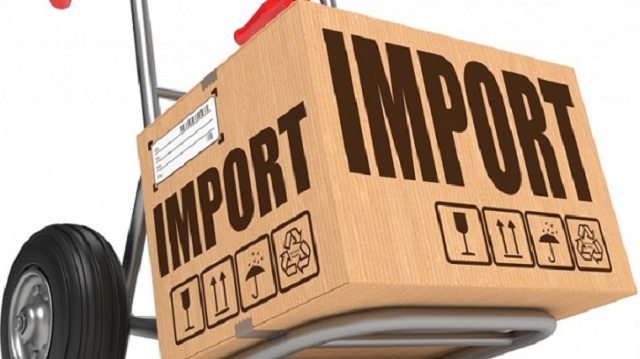Imports dominance blamed on lack of vibrant firms

Prosper Ndlovu, Business Editor
THE key to revitalising Zimbabwe’s economy lies in the creation of new industries that will produce for exports and reverse negative trade, an industry expert says.
Mr Trevor John Hodgskin, an England-based retiree and former managing director of the now defunct Radiator and Tinning (Pvt) Ltd in Bulawayo, says absence of a vibrant local manufacturing is to blame for the continued dominance of imports and export of skilled labour to neighbouring countries and overseas.
He said with more imports coming into the country, firms will continue to suffer job losses.
“There is urgent need to create more home industries that will not only produce for local consumption but for export as well. Zimbabweans must create jobs for themselves and ultimately jobs for others as they expand,” said the 86-year-old industrialist.
Zimbabwe is grappling with weak production as evidenced by continued trade deficit estimated at $3 billion annually. The trend has prompted the enactment of import control measures such as Statutory Instrument 64 of 2016, which removed about 40 products from open general import licence.
The legislation has already started bearing fruit with industry executives applauding Government protection amid reports that the measures have influenced a 13 percent increase in capacity utilisation to 47 percent from 34 percent.
In an e-mail submission to Business Chronicle Mr Hodgskin says Zimbabwe has a brighter future and challenged entrepreneurs to be more “willing to work hard” through perseverance and faith in increasing production capacity in all its key sectors of the economy.
“You may think I am preaching but I have done all these things before at an old firm in Bulawayo, Radiator and Tinning, regrettably the company collapsed due to currency change and our electricity bill and other reasons,” he said.
“Possibly it is because of the fact that I could not be there at the time to lead when we hit a snag. But my idea would have been to create a new product line and then expand.”
With so many firms having closed shop in the last decade or so, Mr Hodgskin says a lot of machinery lying around and thousands of skilled personnel that lost their jobs could still be harnessed.
“Surely someone could do what we had years ago – have an industrial development corporation – to organise and create and guide young industries. There must be retired skilled and willing people who can possibly set up a cooperative. I personally would enjoy helping with knowledge on how to operate some of the machinery.
“There must be lots of the machinery all over that could still be modified and used for sound business,” he added.
“My ideas to stop the demise of Bulawayo may be old fashioned but we need to stop exporting all of our skills. Bulawayo has wonderful, capable, people and I worked with you. You know we can re-create this city and make it an industrial centre of Zimbabwe.”
Radiator and Tinning was closed in 2010 and left scores of workers stranded. The firm was later liquidated through a High Court order although workers cried foul over unfair payment of their dues. The engineering firm was situated at an industrial complex close to the Bulawayo City Centre along Fife Street Extension.
The premises covered an eight acre landscape with extensive industrial buildings, enormous open and covered yard space, double storey office block, two road frontages, boreholes and fuel storage, clinic and stores. It also had a huge selection of equipment, including light and heavy engineering machinery, wire extruders, plastic injection, moulders, various furnaces and smelters and overhead lifting tackle.









Comments